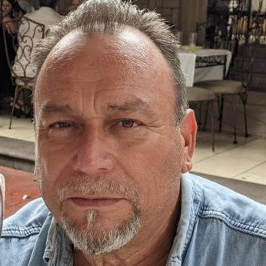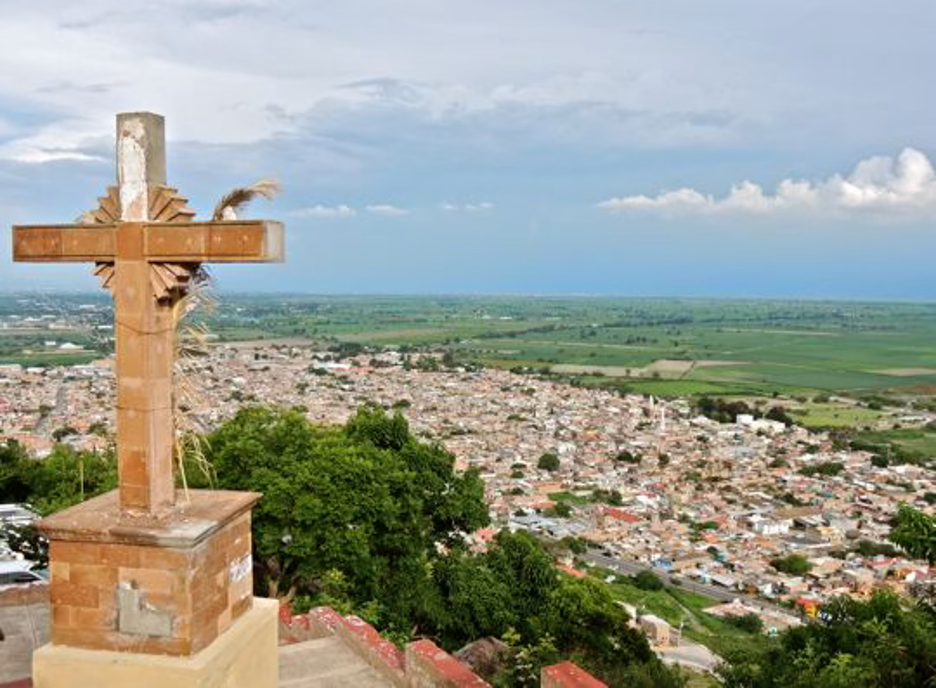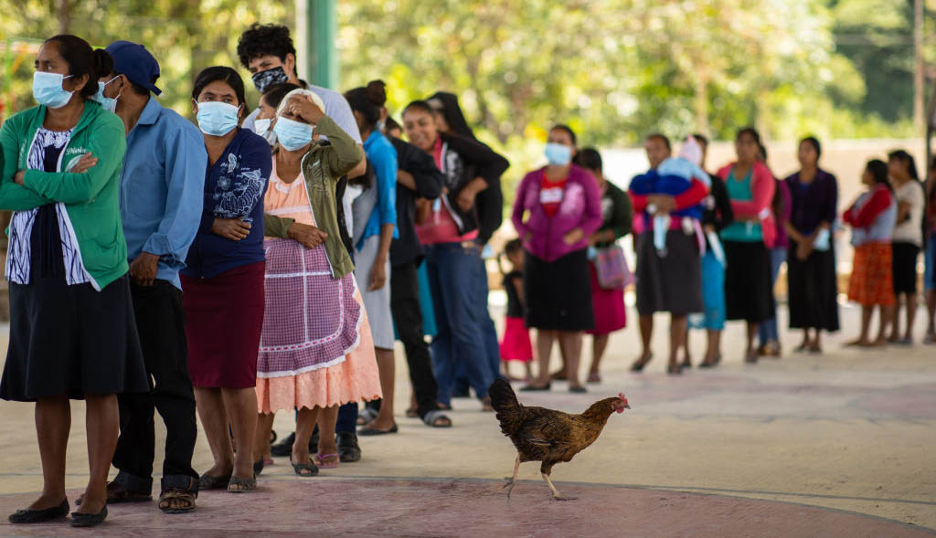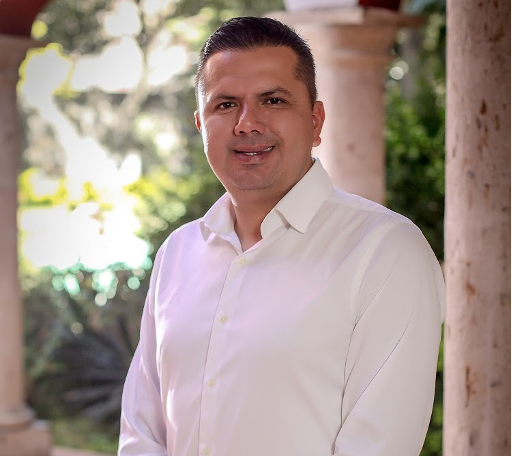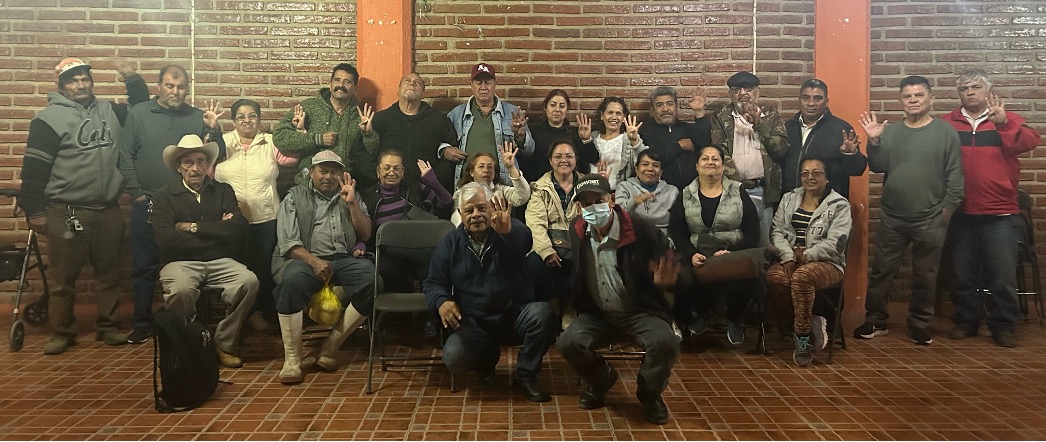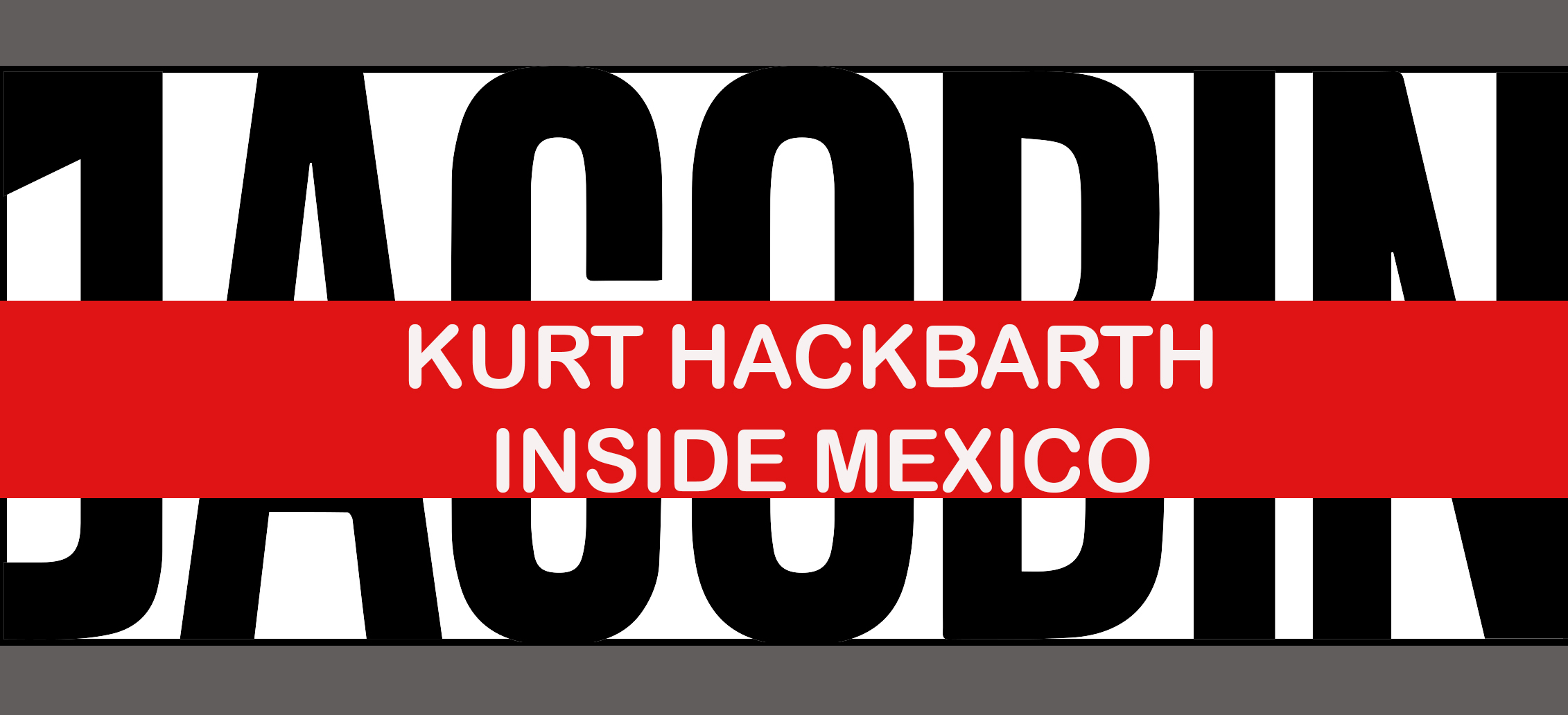|
|
The weekly newsletter of the Mexico Solidarity Project |
|
Every issue archived online at mexicosolidarityproject.org |
|
July 31, 2024 |
|
|
|
Heads up! The Mexico Solidarity Bulletin will be taking a much-needed break for 2 weeks. We will return on Wednesday, August 21, 2024. Thanks, see you then! |
|
Party Unity: Morena’s Internal Challenges |
|
Meizhu Lui, for the editorial team |
|
|
Unity! We know nothing is more precious — but it’s so much easier said than done. Think about marriage. Even with just two people, staying united is no piece of cake. Look at the US left. We could be much more powerful if we figured out how to manage internal differences and thus build a unified strategy and organization. But so far, no go.
In Mexico, the fledgling Morena party, only ten years old and with just one administration under its belt, must work out how to stay unified. Sometimes that’s harder when you’ve been around the block than when you’re just starting out.
Remember the group of popular kids in your high school and how everyone wished they could join that group? Morena is clearly the popular party in Mexico, and so every political climber would love to have that tag next to their name. Unfortunately, Morena has been open to anyone who wants to join it, so now grasshoppers or chapulines have infested it, jumping into the party just to win office.
In today’s issue, we talk with Agustín Arreola, a Morena activist trying his damnedest to build a solid organization in Jamay, Jalisco. He talks about the obstacles to unity he’s experienced in Morena. And in our Reflections column, Kurt Hackbarth talks about what Morena did right in the June 2 election to accomplish the thorough “drubbing” it delivered to the opposition.
Can Morena stay unified around its core principles? Will it be able to unify, as Agustín asks, in action as well as speech, locally as well as nationally? Morena activists have their work cut out for them, as do all of us on the left.
|
|
AN EXCITING INTERVIEW!!
Immigration, Democracy and the 2024 Elections
How to fight for an affirmative and humane immigration policy: Challenging the lies and racism of the MAGA right!
Interview with Nana Gyamfi, Emily Jieming Lee, and Jose Luis Granados Ceja
Emcee'd by Democracy Now’s Juan Gonzalez. RealNews Network, YouTube |
|
|
For a deeper dive into current news and analysis in English, check out our media website. And definitely see the new English podcast ¡Soberanía! (Sovereignty) with José Luis Granados Ceja and Kurt Hackbarth. They entertain while dismantling the lies and distortions about Mexico fed to us by the mainstream media. |
|
Don’t miss an issue! Sign up for a free Mexico Solidarity Bulletin subscription. |
|
|
Local Politics: Morena Under a Microscope |
|
Agustín Arreola grew up poor in Jamay, Jalisco. As a result of his early experiences, he became a socialist and political activist, vowing to build a society that provides peace and economic security for all. That can be achieved, he believes, through a conscious and organized working class. |
|
|
You’ve lived in both the US and Mexico. Why did you leave Mexico for San Diego, and why did you decide to move back to Mexico?
My hometown is the small city of Jamay in the state of Jalisco. In college, I met my wife, who was an American citizen. Because it was hard to find a job, we decided to move to San Diego, where I lived from 1990 until 2018.
In Mexico, I joined a socialist organization, and I got to work organizing! One campaign that we supported was for the people of El Salvador. Through that international work, I got to know people in San Diego, and when I arrived, I soon found a socialist who became a friend, and he got me involved in many local struggles.
But I never lost touch with Jamay, which is near the beautiful Lake Chapala. My brother, also a radical, called me often with the local news. |
|
|
“El Mirador,” overlooking Jamay |
|
I went back many times to participate in issues like saving our only high school, which the government wanted to move to another city.
But in 2018, with the election of the president Lopez Obrador, it was time to go home to help the Morena party transform Mexican politics. It was an exciting moment! |
|
Jalisco is a pretty conservative state, right?
Yes and no. We have some of the most progressive people in Mexico, descendants of the movement for independence against the Spanish colonizers in the early 1800s. There’s a monument to Hidalgo, the priest who kicked off that revolution, at the spot he visited in Jamay. We have ejidos, collectively owned land that dates way back to right after the overthrow of the Spanish. The peasants’ demand for “land and liberty” is still our heritage.
But Jalisco also has people — private landowners — who are part of the ultra-right, who descend from the rich who supported Spain’s rule. They even supported the French when they came to colonize Mexico after the Spanish were kicked out. They are even to the right of the main right-wing party, the PAN!
These people live in the Altos de Jalisco, referring to an area to our north. Even though progressives outnumber these elites, it’s hard to win against them. Jamay used to be part of a voting district together with other working class communities, but we got gerrymandered into a district that includes the “altos” which is more than 3 hours away.
In 2019, you helped organize a group of Morenistas to win the 2021 mid-term election, but then you left Morena. What happened? |
|
|
Rural Mexicans lining up to vote in the 2021 midterm election |
|
Some of us formed a Morena collective. We were asked to choose a candidate for our representative to Congress; it had to be a woman due to the rules on gender equality, and we found a good person. But then, someone higher up in Morena called us to say they chose a different candidate — someone we didn’t know, and who had been in PRI!
Unfortunately, there are some “personalities” in Morena at the state level who have divided the state into their own “areas of influence.” This is an old style of politics. “Caciques,” party bosses, call the shots. In this case, they chose a chapulin or grasshopper from the PRI! Some of these so-called Morena leaders had also been in the PRI but had joined a united front for AMLO in 2018.
Our collective decided not to support Morena and instead ran our candidates from the PT (Partido de Trabajo).
In that election, because people loved AMLO, Morena got the most votes for the national position. But locally, Morena lost. If the other Morenistas had worked together with us, we could have won for Morena.
Did you rejoin Morena for the 2024 election?
In 2022, we regrouped and the two organizations came together. But we had problems. We found that some were secretly working against our team — playing dirty. And, once again, the Morena candidate for mayor was not chosen by the Morena rank and file but by an outsider with political pull. Local Morenistas were excluded from making the decisions. He was not a good candidate; he didn’t know what Morena really stands for.
Morena needs to be together in action and not just in words — we had no unity! This is not just a problem in Jamay; it’s a problem all over the country. The local race was such a mess that our collective decided to focus on the federal and state elections and not waste energy on the local. We attended local rallies, but that was about it — and I was never asked to speak, even though our group had a lot of support. |
|
In the end, the vote in Jamay for Claudia Sheinbaum was huge. But the vote for Morena candidates for City Council was only a third of what they got in the previous election. Locally, people vote for the person, usually someone they know, and not the party. Only one Morena candidate got elected. The mayor is now with the conservative coalition, the PRI/PAN/PRD.
But the crazy thing is that I know this guy, and once when we met on the street when he was drunk, he was yelling his support for Morena! He’s someone we will be able to work with! |
|
|
L.E. César Molina Sahagún, Presidente Municipal of Jamay who is friendly to Morena. Photo: jamayjalisco |
|
So now, what will your group do to get Morena to do the right thing so it can continue to be the progressive party of the people?
We local Morenistas want to take control. Morena stands for inclusion, respect, and democracy, and that’s how we’ve been building our base. We have to stop the practice of state level party people handpicking candidates. No! We need to choose candidates who relate to the local people. |
|
|
The Jamay Morena collective Photo: Agustín Arreola |
|
For those of us on the left, we’re planning a Jalisco state meeting. Maybe we will form a leftwing caucus within Morena — we don’t want to be la cola de la vaca, the tail of the cow. Right now, if you look at Claudia’s picks for cabinet, half represent the corporatist wing, and half I would call “real” Morenistas. For the next six years, we need to pull Morena to the left.
What’s next for you?
I’ve been back in San Diego due to medical problems, and my sons and grandkids are here. And I’m very worried about Trump; if he wins, he’ll try to undercut Mexico’s progress. I could help organize Mexicano/Latino communities to defend our home country. But I also want to help build a good Morena organization in Jamay.
Where can I be of the most use, San Diego or Jamay? That’s my question. I can’t do much as one person, but I can do a little — and with a little and a little and a little, we can make a big difference. |
|
|
|
|
Mexico’s Lessons for the International Left |
|
|
Writer, playwright, and journalist Kurt Hackbarth is a naturalized Mexican citizen living in Oaxaca. His political commentary is regularly featured in Sentido Común, Al Jazeera, and Jacobin. We excerpted the following piece from a recent article in Jacobin. It has been edited for brevity and clarity. |
|
|
|
Mexican president-elect Claudia Sheinbaum greets supporters on June 3, 2024 (Hector Vivas / Getty Images) |
|
On Sunday, June 2, former Mexico City mayor Claudia Sheinbaum won a resounding victory to become the first woman president in Mexican history. The thirty-two point drubbing of her conservative opponent, Xóchitl Gálvez, was even larger than the one sweeping Andrés Manuel López Obrador (AMLO) to power in 2018.
How did the MORENA coalition not only equal but build on its 2018 victory?
Let’s break it down. |
|
Worker-Friendly Legislation
Wielding its congressional majorities, the MORENA government passed a raft of worker-friendly legislation over its first term, including increased employer contributions to individual retirement accounts, union reform providing for secret ballot elections and the mandatory approval of existing contracts by the workers. Other laws prohibited companies from contracting out their core functions and increased the formula paid in profit sharing and worker disability benefits. Vacation days and the minimum wage doubled. Boosted by these increases, wages for salaried workers are outpacing inflation by 32.6 percent.
Not Throwing the Poor Under the Bus
AMLO never distanced himself from the slogan of his first presidential campaign: “Por el bien de todos, primero los pobres” (“For the good of all, the poor come first”). He initiated a universal senior pension, stay-in-school scholarships for public school students, benefits for working mothers, and farm supports. He started road-building works using local labor and materials in poor states such as Oaxaca. To avoid the means-testing trap advocated by elite policy centers, AMLO made programs, such as pensions, universal and locked them in with constitutional amendments.
In the depths of the pandemic, these programs provided a lifeline to the half of the workforce who are in the informal sector. According to the National Council for the Evaluation of Social Development Policy (CONEVAL), some 5.1 million Mexicans were lifted out of poverty from 2018 to 2022.
The Mañanera Against the Media Scrum
AMLO refused to be kneecapped by the same national and international press that attempted several times to prematurely end his career. He instituted what became the set piece of his administration: his morning press conference, known as the mañanera. Equal parts information session, debate club, history lesson, and stand-up routine, the two- to three-hour daily sessions allowed him to go over the heads of the corporate media, set his agenda and bat back the opposition’s never-ending attacks. Over time, the mañaneras turned political analysis into popular entertainment, and they became a social-media phenomenon with the president hitting the top ten of Spanish-language streamers, beating out YouTubers a third of his age.
Reappropriating “Anti-Corruption”
In country after country, the Right has hijacked the discussion of “values,” “anti-corruption,” and “patriotism,” but AMLO deftly turned them all on his opponents.
First, he focused on the value of living within one’s means, both on a personal and governmental level, in order to lift those less well-off. He inherited a state with a golden caste of agency heads — top-level bureaucrats and judges — who showered themselves with eye-popping salaries and benefits. This gave him the opportunity to go to war against excess under the battle cry, “There cannot be a rich government with a poor people.”
Second, he crusaded against the corruption that, in conjunction with the mass privatizations of the neoliberal era, hollowed out the state from within, making it easy prey for infiltration by drug cartels while creating a class of nouveau riche multimillionaires.
Finally, with his regional accent, love of colorful phrases, tours to every community of the country and extolling of the nation’s history, culture and cuisine, AMLO was the quintessential Mexican — a contrast to an opposition running off to Washington to ask Uncle Sam into intervening at its bidding.
Maintaining Party Unity
In 2024, as MORENA was tested by the first competitive presidential candidate selection, several pundits predicted that the process would end badly for the youthful party. Mindful of the internal election process that tore apart MORENA’s predecessor, the Party of the Democratic Revolution, it adopted a candidate selection process based on opinion polling instead of primary voting. The party designed a system of five national polls; Morena conducted one poll, and other candidates chose four other firms. In every poll, Sheinbaum won by an average of 13.5 percent.
Selection by polling is clearly a fudge and by no means constitutes a long-term solution for MORENA. But in a context where Mexico has scant experience in organizing primaries, it spared a youthful party from an acrimonious process for which it was arguably not ready.
Embracing Continuity with AMLO
Despite concerns that she was not “charismatic” enough to sustain a presidential candidacy, Claudia Sheinbaum played to her strengths and ran a tight-ship campaign that combined a staggered rollout of policy proposals with a heavy travel schedule. Challenged by the opposition to distance herself from AMLO and prove that she was “her own person,” she refused to take the bait. She explained repeatedly that she represents a movement and that her administration will be dedicated to building a segundo piso, or second floor, on top of AMLO’s first.
When the new Sheinbaum administration’s battles begin, sensationalist headlines from the mainstream press will attack her again. But as they showed on June 2, Mexican voters are singularly unconcerned. |
|
|
The Mexico Solidarity Project brings together activists from various socialist and left organizations and individuals committed to worker and global justice. We see the 2018 election of Andrés Manuel López Obrador as president of Mexico as a watershed moment. AMLO and his progressive Morena party aim to end generations of corruption, impoverishment, and subservience to US interests. Our Project supports not just Morena, but all Mexicans struggling for basic rights, and opposes US efforts to undermine organizing and Mexico’s national sovereignty.
Editorial committee: Meizhu Lui, Bruce Hobson, Agatha Hinman, Victoria Hamlin, Courtney Childs, Susan Weiss. To give feedback or get involved yourself, please email us! |
|
Subscribe! Get the Mexico Solidarity Bulletin in your email box every week. |
|
Web page and application support for the Mexico Solidarity Project from NOVA Web Development, a democratically run, worker-owned and operated cooperative focused on developing free software tools for progressive organizations. |




